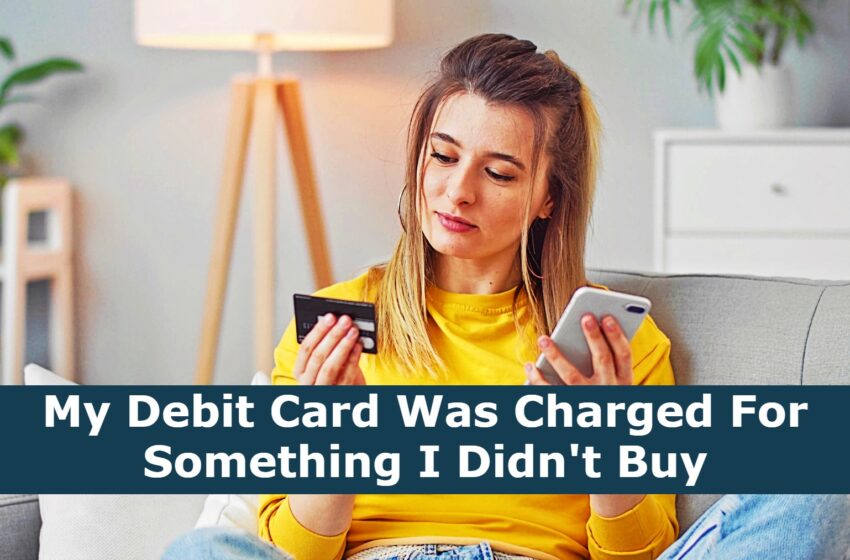
My Debit Card Was Charged For Something I Didn’t Buy
If your debit card has been fraudulently charged, you might be unsure as to what to do next. Here are some steps to take in order to make sure that your money is safely returned to you.
Report the fraudulent transaction within two days
Reporting a fraudulent transaction is important because it makes it easier for authorities to find the perpetrators. By submitting a complaint to the Consumer Financial Protection Bureau, you can also recover some of the money you have lost to fraud.
You can report a credit card or debit card purchase that you believe is fraudulent. It’s not uncommon for identity thieves to access your information and use it to open new accounts. The sooner you report the loss, the better.
If you’re a victim of fraud, it’s vital that you act quickly. In addition to filing a police report, you should contact your bank or credit union and report the fraudulent charge. Your financial institution may be willing to reimburse you for the money you have lost if you do so within a specific period of time.
It is also important to keep track of your monthly statements for any fraudulent charges. You can order replacement cards if you are the victim of theft or if you suspect your card was compromised.
Set up alerts for charges over a certain dollar amount
Whether you want to protect your credit, stay on top of spending, or just be notified when something unexpected happens, you can set up alerts for charges over a certain dollar amount. This can be done through an online banking account or with a mobile app.
Many banks offer this service. Some even have customized notifications. Itasca Bank’s Online Banking Alerts can be received by email and text message.
These notifications are a great way to keep track of your spending and prevent fraud. You can also use them to get a reminder to pay your bills on time. They can also help you prevent overdraft fees.
The BECU Money Manager app allows you to customize your alerts. Not only can you set up an alert to warn you if you exceed a budget, but you can also make categorizations of your spending so you can identify if you’re overspending.
Some credit card issuers will send you an email or text message when a purchase is made that is over a certain dollar amount. This is especially helpful for people with low credit limits.
Follow up with a letter to your creditor
You should consider writing a follow up letter if you have a credit card that’s been used to buy something you didn’t really buy. It’s a good way to protect yourself against a nefarious credit card scrooge and to avoid being stuck on the hook for the balance after the fact. If you can’t or don’t want to go through the hassle of contacting your bank, you may have to consider using a service like PayPal to pay off your balance. Using your debit or credit card can be a risky business, especially if you use it to buy items online. This is why it’s important to be well informed. One thing to be sure to do is to review your bank statement in earnest when it arrives in the mail. The best time to do this is when you’re not at work or otherwise engaged in other activities that would taint your judgement.
Get a refund
If you find that your debit card was charged for something you did not buy, you should contact your debit card provider as soon as possible. The credit card company will help you resolve the issue and get the money back. You can also ask the Financial Ombudsman Service to look at the case.
There are several ways you can make a request for a refund. Your card provider can either send you a statement or you can contact them by phone or email.
Some retailers allow you to request a refund online. However, you may need to send a copy of the receipt with your request. Depending on the retailer, you may need to wait up to 45 days to get a refund.
Amazon has a 25-day return policy. They will accept returns of items that were significantly different from what was advertised. Also, they will take back items that are missing pieces. Depending on your issue, they might issue you store credit or offer a full refund.


